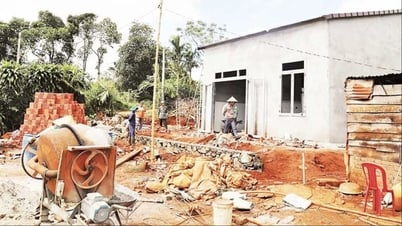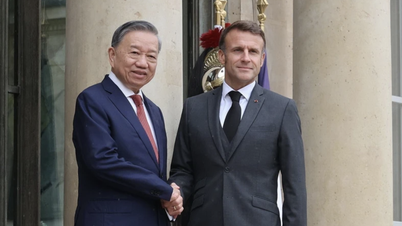Treasury Secretary Janet Yellen said on March 12 that the U.S. government will not bail out Silicon Valley Bank (SVB) as it did with other financial institutions during the 2008 financial crisis, but the head of the U.S. Treasury noted that regulators are working to ensure that individuals and businesses who deposit money with SVB will be fully repaid.
Appearing on CBS's "Face the Nation" on March 12, Yellen signaled that there would be no government bailout of the nation's 16th-largest bank, as was done for hundreds of institutions during the 2008 financial crisis.
“During the financial crisis, there were investors and owners of large, systemic banks that were bailed out,” Ms. Yellen said. “And the reforms that have been made since then mean we won’t have to do that again.”
Ms. Yellen also stressed that officials “care about depositors and are focused on trying to meet their needs.”
“I worked through the weekend with our banking regulators to design appropriate policies to address this situation,” the head of the US Treasury Department said. “I really can’t provide any further details at this time.”
US Treasury Secretary Janet Yellen attends a House hearing on Capitol Hill, March 10, 2023. Photo: Getty Images
The fate of Silicon Valley Bank (SVB) and its customers was revealed over the weekend, days after federal regulators seized control of the financial institution following a series of massive withdrawals by depositors.
SVB's collapse marks one of the biggest failures of a US bank since the 2008 global financial crisis.
SVB found its footing in the banking industry by lending to tech startups, but recent financial woes facing the tech industry have strained the Silicon Valley bank and sent its stock price plunging.
Despite the SVB collapse, Ms. Yellen said she believes the overall U.S. banking system is “really safe, well capitalized” and “resilient.”
The Federal Deposit Insurance Corporation (FDIC) said on March 10 that all insured depositors will have full access to their insured funds no later than the morning of March 13 (local time). The agency also said it will pay uninsured depositors an “advance dividend” next week and that depositors will receive “certificates of receipt for their uninsured funds.”
As an independent federal agency, the FDIC does not use taxpayer money to insure deposits, but is funded through insurance premiums paid by member banks and savings associations.
Regulators in the UK are also working on a plan to ensure that customers of SVB's UK branch (SVB UK) are paid.
Pedestrians walk past a Silicon Valley Bank (SVB) branch in Napa, California, on March 10, 2023. Photo: San Francisco Chronicle
SVB’s collapse has left tech companies and other customers of the bank in limbo and has even caused headaches for those without a direct connection to the bank, such as Etsy sellers who have been told they may see delays in receiving payments because the online marketplace uses SVB to process some payments.
In another development, the federal government on March 12 announced the collapse of a second bank with deep ties to the tech industry as regulators scrambled to contain the damage caused by SVB's collapse.
Manhattan, New York-based Signature Bank – a key financial institution for the cryptocurrency industry – has been closed due to a “similar systemic risk exception,” according to a joint statement from the heads of the US Treasury , the Fed, and the FDIC.
California-based SVB has $209 billion in assets, while Signature Bank has more than $110 billion.
SVB is the second largest bank to fail in US history, after Washington Mutual in 2008. And Signature Bank is the third largest bank to fall into this situation .
Minh Duc (According to NPR, NY Post)
Source


![[Photo] Party and State leaders visit former President Tran Duc Luong](https://vphoto.vietnam.vn/thumb/1200x675/vietnam/resource/IMAGE/2025/5/24/960db9b19102400e8df68d5a6caadcf6)
![[Photo] Ho Chi Minh City holds funeral for former President Tran Duc Luong](https://vphoto.vietnam.vn/thumb/1200x675/vietnam/resource/IMAGE/2025/5/24/9c1858ebd3d04170b6cef2e6bcb2019e)




























































































Comment (0)